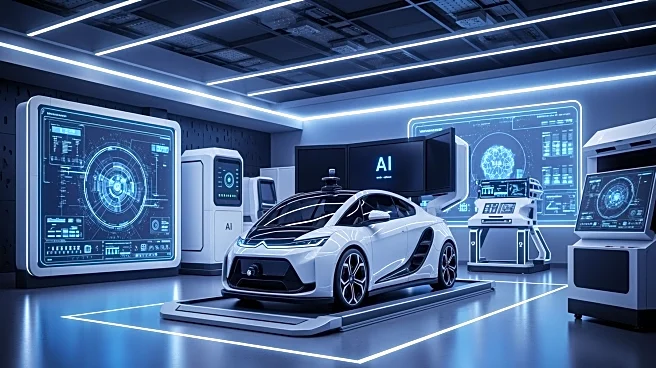What's Happening?
Nissan has announced a three-year extension of its strategic partnership with Monolith, a company specializing in artificial intelligence (AI), to revolutionize its vehicle development process. This collaboration aims to reduce the reliance on physical
vehicle tests by utilizing AI technology to predict test outcomes. Initially applied to the Nissan LEAF electric vehicle, Monolith's AI will now be used for future models in Europe. The AI technology leverages over 90 years of vehicle testing data to simulate and validate vehicle performance, significantly cutting down on the need for physical prototypes. This approach has already resulted in a 17% reduction in physical testing, with the potential to halve testing time across Nissan's European vehicle range.
Why It's Important?
The extension of this partnership is a significant step in Nissan's global recovery plan, RE:Nissan, which focuses on accelerating product delivery and enhancing operational efficiency. By integrating AI into the vehicle testing process, Nissan aims to bring products to market more quickly, reduce resource use, and support its commitment to innovation and sustainability. This move not only enhances Nissan's competitive edge in the automotive industry but also sets a precedent for the use of AI in engineering, potentially influencing other manufacturers to adopt similar technologies. The reduction in physical testing also aligns with environmental goals by minimizing waste and resource consumption.
What's Next?
As Nissan continues to integrate AI into its testing processes, the company is likely to see further reductions in development time and costs. This could lead to faster rollouts of new models and technologies, enhancing Nissan's market position. The success of this partnership may encourage other automotive companies to explore AI-driven testing solutions, potentially leading to industry-wide changes in vehicle development practices. Stakeholders, including engineers and environmental advocates, may closely monitor the outcomes to assess the broader implications for innovation and sustainability in the automotive sector.















